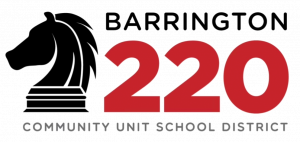
Barrington Community Unit School District (CUSD) 220, a high-performing school district located in the northwest suburbs of Chicago, serves approximately 8,600 students. During the 2018-2019 school year, through the district’s process of cohesive planning, the board began prioritizing social and emotional learning (SEL) along with a whole-child approach to measuring student success.
While District 220 has a strong culture of personalized learning that values the whole-child, the district’s measurement and assessment system at the time did not easily allow the district to understand the SEL needs of individual students, resulting in an incomplete portrait of their students. This made it challenging to personalize learning and to address student needs holistically.
District 220 created an SEL committee, established SEL goals for each school, and leveraged its partnership with ECRA to develop and embed an SEL assessment within the district’s personalized learner profile (PLP) system. What emerged was an SEL self-assessment aligned to the Collaborative for Academic, Social, and Emotional Learning’s (CASEL) competencies, which prioritized SEL competencies believed to be within the impact zone of school programming. Three domains emerged:
- Responsible Decision-Making – Students reflect on responsible behaviors and decision-making skills. Measures constructive choices about personal behavior and social norms.
- Self-Regulation – Students reflect on self-awareness and self-management. Measures student self-observation, perceptions of his or her own ability to be successful, management of behavior and emotions, and perseverance or effort.
- Social/Relationships – Students reflect on social awareness and relationships. Measure empathy, cooperation, and understanding perspectives of others.
By the fall of the 2019 school year, the District had begun to administer the new SEL assessment and implement SEL data into existing support structures, such as MTSS and problem-solving teams. The District utilizes the ECRISS platform to organize, analyze, and disseminate its data, which helps teachers incorporate SEL into their instruction. With the inclusion of SEL results into the ECRISS Personalized Learner Profile (PLP), teachers now have a much broader view of each student, allowing them to better address individual student needs. The district now analyzes a student’s SEL needs alongside other academic and non-academic indicators such as grades, attendance, assessment scores, interests, goals and aspirations.
“The data you choose to share within your schools sends a clear message about what you value.”
District 220 did not set about their SEL journey looking for a quick win, but rather to foster a positive climate and culture. That said, the case of Barrington CUSD 220 demonstrates how quickly a district can implement SEL strategies via a focused and disciplined approach. District 220’s Assistant Superintendent of Teaching and Learning, John Bruesch, credits the district’s success to having a plan in place from the beginning.
“It is important to have a rationale for why you are surveying students,” Bruesch said. “If nothing else, parents will want to know.”
Properly sharing SEL data, according to Bruesch, helps districts more clearly communicate their values with local stakeholders. Without clear goals in mind, the value of the data is diminished.
“The data you choose to share within your schools sends a clear message about what you value,” added Bruesch. “When you put students and their emotional health first, that sends a clear message about the type of organization that you are.”
ECRA partners with schools to develop an evidence-based framework that supports your efforts in school improvement and measures the return on investment of programs and initiatives.
ECRA Group is an approved IL-Empower professional learning partner. Should you have any questions regarding how ECRA Group can assist your school or district through the IL-Empower network, please email: IL-EMPOWER@ecragroup.com.







